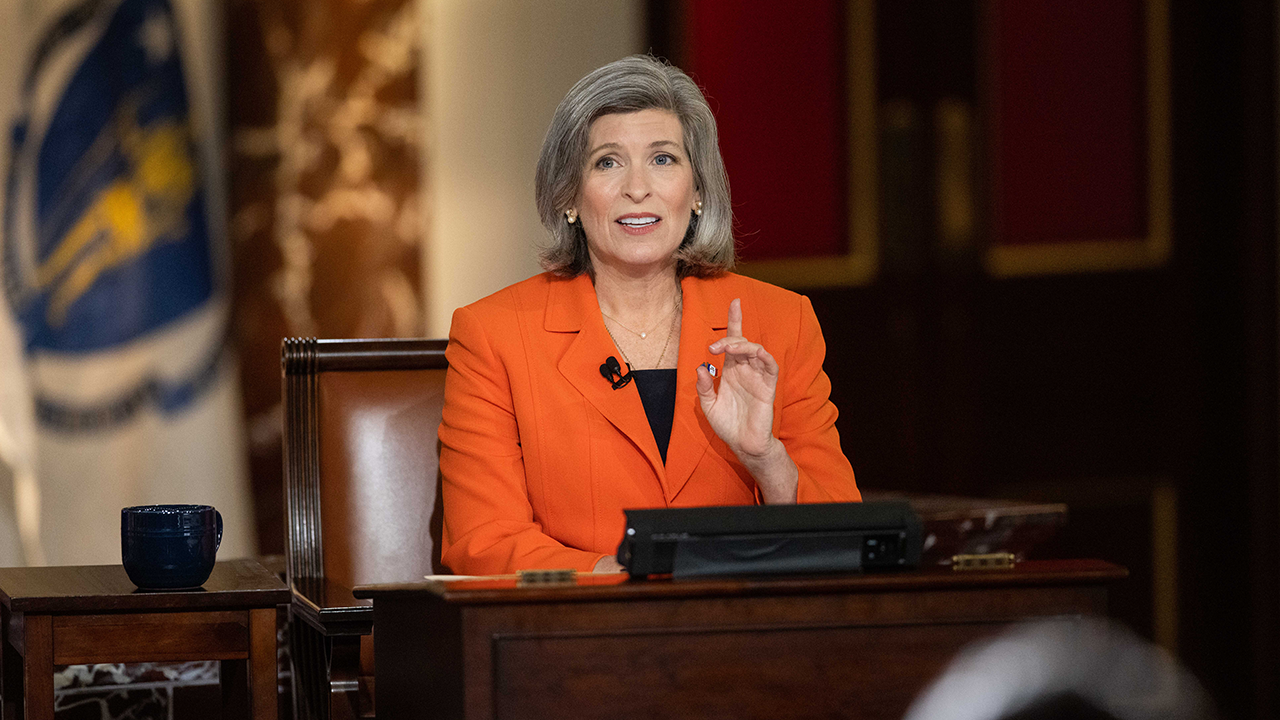Senate DOGE leader Ernst to take on government telework abuse at first meeting with Musk, Ramaswamy

Sen. Joni Ernst, R-Iowa, is making waves with her new proposal for the Department of Government Efficiency (DOGE), which aims to reduce government waste and increase accountability in federal agencies. Ernst, who chairs the Senate DOGE Caucus, has been working closely with tech entrepreneur Elon Musk and businessman Vivek Ramaswamy since they were selected by President-elect Trump to lead the new agency.
The trio is set to unveil Ernst’s proposal and a comprehensive 60-page report during a Senate DOGE Caucus meeting on Thursday morning, where Musk and Ramaswamy are expected to be in attendance. Following this, House Speaker Mike Johnson will host an event with Musk and Ramaswamy for all Republican legislators in the House and Senate, with Ernst also scheduled to be present.
Ernst’s proposal is based on her two-year investigation into telework abuse within the federal government. One of the key recommendations she is putting forward is the relocation of Washington’s workforce to various locations across the country. This would involve moving the headquarters of non-security-related government departments and agencies to areas with expertise relevant to their missions.
Additionally, Ernst is proposing legislation to relocate at least 30% of employees from Washington, D.C. headquarters to field offices in communities nationwide. She also suggests that the White House and executive branch agencies consider relocating some staff without the need for congressional approval.
Another major aspect of Ernst’s proposal is a call for federal government agencies to achieve a 60% daily occupancy rate at their headquarters. Currently, most agencies fall far short of this target, with some operating at less than half capacity. Ernst highlights the staggering costs associated with maintaining and leasing government office buildings, which amount to billions of dollars annually.
To address this issue, Ernst recommends that the General Services Administration auction off vacant, underutilized, and unnecessary government buildings and properties. She also proposes the cancellation or expiration of $15 million worth of leased office space and property that is not being fully utilized.
In addition, Ernst is advocating for legislation that would require the reduction and consolidation of unused office space to ensure that all buildings achieve a utilization rate of 60% or higher. She also wants performance to be a determining factor in whether federal employees are allowed to telework, with measures in place to ensure transparency and accountability in the telework process.
Ernst’s proposal also addresses concerns about federal employees abusing telework arrangements to boost their salaries. She highlights cases where employees falsely claim to be working in high-pay rate areas while actually living elsewhere, resulting in inflated paychecks. Ernst’s plan aims to crack down on such practices and ensure that telework is used appropriately and ethically.
Overall, Ernst’s proposal represents a comprehensive and ambitious effort to streamline government operations, cut costs, and improve efficiency. With the support of Musk and Ramaswamy, she is poised to make significant strides in transforming the way the federal government operates. As Republicans gear up to take control of the White House and Congress, Ernst’s proposal could serve as a blueprint for a new era of government accountability and effectiveness.




